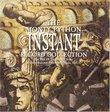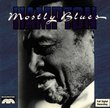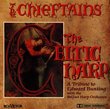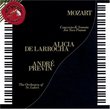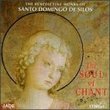| All Artists: Alicia De Larrocha Title: Enrique Granados: Goyescas / Allegro de Concierto / Danza Lenta / El Pelele - Alicia de Larrocha Members Wishing: 0 Total Copies: 0 Label: RCA Release Date: 7/1/1991 Genres: Dance & Electronic, Classical Styles: Ballets & Dances, Dances, Forms & Genres, Short Forms, Instruments, Keyboard Number of Discs: 1 SwapaCD Credits: 1 UPC: 090266040827 |
Search - Alicia De Larrocha :: Enrique Granados: Goyescas / Allegro de Concierto / Danza Lenta / El Pelele - Alicia de Larrocha
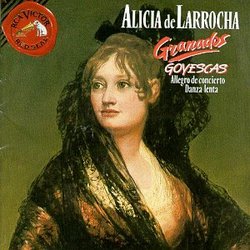 | Alicia De Larrocha Enrique Granados: Goyescas / Allegro de Concierto / Danza Lenta / El Pelele - Alicia de Larrocha Genres: Dance & Electronic, Classical
|
Larger Image |
CD DetailsSimilar CDsSimilarly Requested CDs
|
CD ReviewsBeautiful... Alex Serrano | Perrysburg, Ohio United States | 05/31/2002 (5 out of 5 stars) "Alicia de Larrocha is one of those pianists whose mastery in certain repertoire is unparalleled, and mostly unchallenged. Even though her recordings of mozart, schumann, are always well poised and balanced, her mastery of the Spanish repertoire is such that her other acheivements stand small in comparison. This is repertoire that she has recorded more than once, and i for one am grateful that she chose to go through the Granados Goyescas for a second time (her first trial was in the 60's for EMI). In this new recording, she is more concentrated on tone, sound, and overall relationship of one work to another rather than on the virtuosity necessary to pull these works off convingcingly. So, for once, you hear these works played as almost one - with some pervasive melodies haunting more than one work and all necessary to form the group the composer intended. Larrocha will always be remembered for recordings such as this where everything falls into place so naturally that the piano becomes a breathing instrument. This is trademark of a selected few indeed." Not so great Granados from Alicia Malcolm Saldanha | Washington, DC | 02/23/2000 (3 out of 5 stars) "Alicia De Larrocha's earlier recordings of this music (on EMI and London) must surely rank as some of the greatest piano playing ever recorded, especially her Goyescas and other works of Granados which she made in the late 1960's (the EMI recordings), when she was at the peak of her playing. However, on this present recording it's pretty clear what has been apparent to me for some time now: her age is affecting her abilites and she just can't play with the same mastery or ease. Though her technique is still more or less secure, the playing sounds just a tad bit erratic in places. "El Fandango del Candil", the concluding piece "El Pelele", as well as the "Allegro de Concierto" are nowhere near as brilliantly played as they are on her earlier recordings. And "Danza Lenta" sounds ponderous. Having said that, the playing is still has its attractive qualities and, as always with her, is musical. The piano sound, however, is awful: thin, hard in tone, with no resonance or acoustic glow (compare, for example, the sound Phillips produces for Uchida in her Schubert recordings). If you love Spanish classical music, you're better off with her earlier recordings." A poetry of paintress! Hiram Gomez Pardo | Valencia, Venezuela | 08/03/2007 (5 out of 5 stars) "The name of Enrique Granados will always be associated with to that tragic episode that defined his life in 1916.
But his musical bequeath will always be estimated by the rest of the world who will be able to enjoy the delirious, captivating and engaging inspiration produced by Goyescas, a heartfelt homage to Francisco de Goya, one of the most prominent and genuine Ambassadors of the Spanish painting. IN this sense, this suite for piano is frame by frame a sumptuous and posthumous tribute, keeping into account the repressed lyricism of the Spanish lyric. Pitifully, there have not been so many successful recordings that may be regarded as memorable, because somehow elude the elusive gaze, the historical perspective and the Mediterranean poetry nestled bellow the score. To my view, there are two versions worthy to regard; the extraordinary and now almost forgotten performances of Rena Kyriakou and the best known version of Alicia de la Rocha, who understood faithfully the dynamics of the work. " |

 Track Listings (9) - Disc #1
Track Listings (9) - Disc #1

